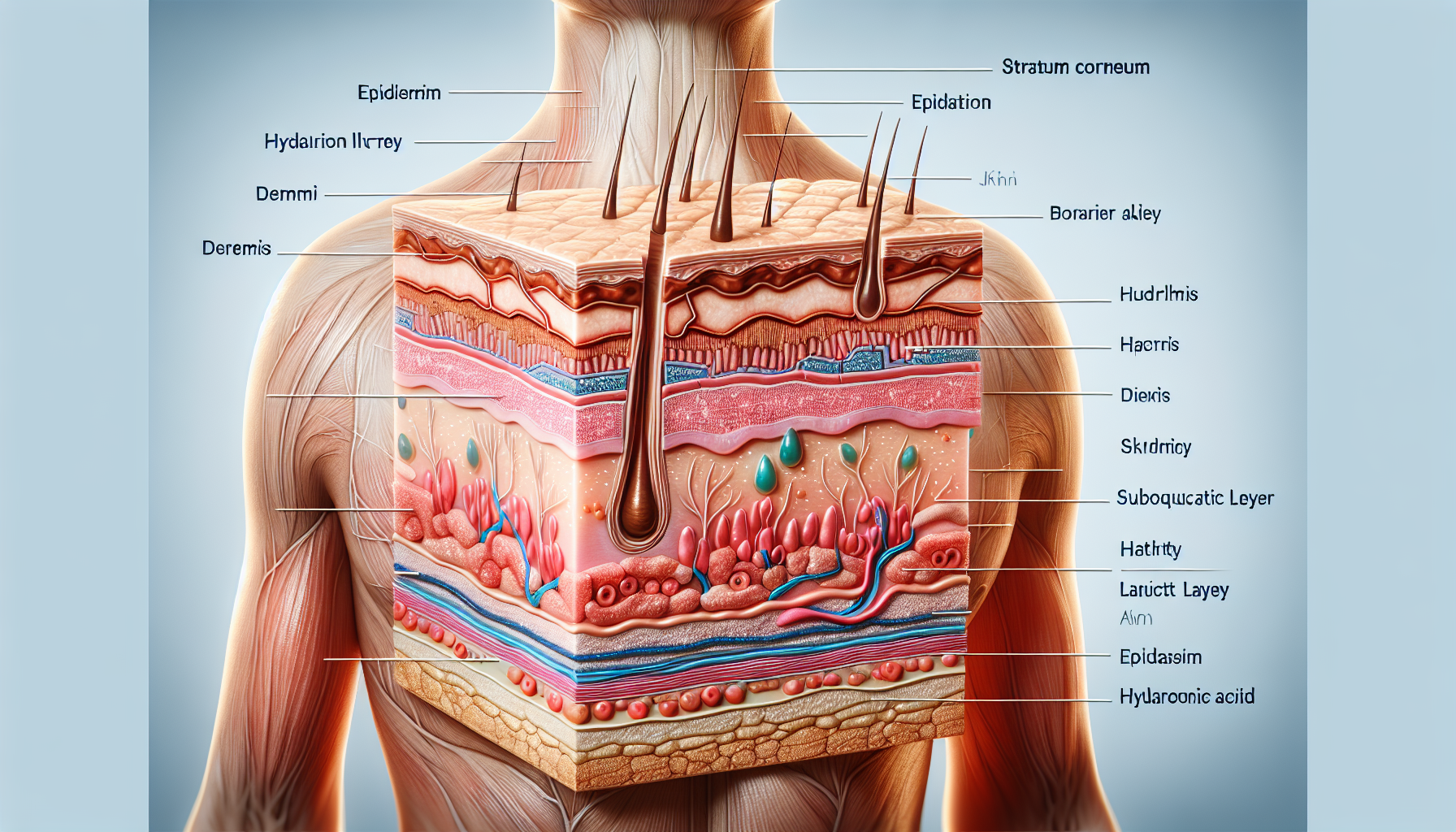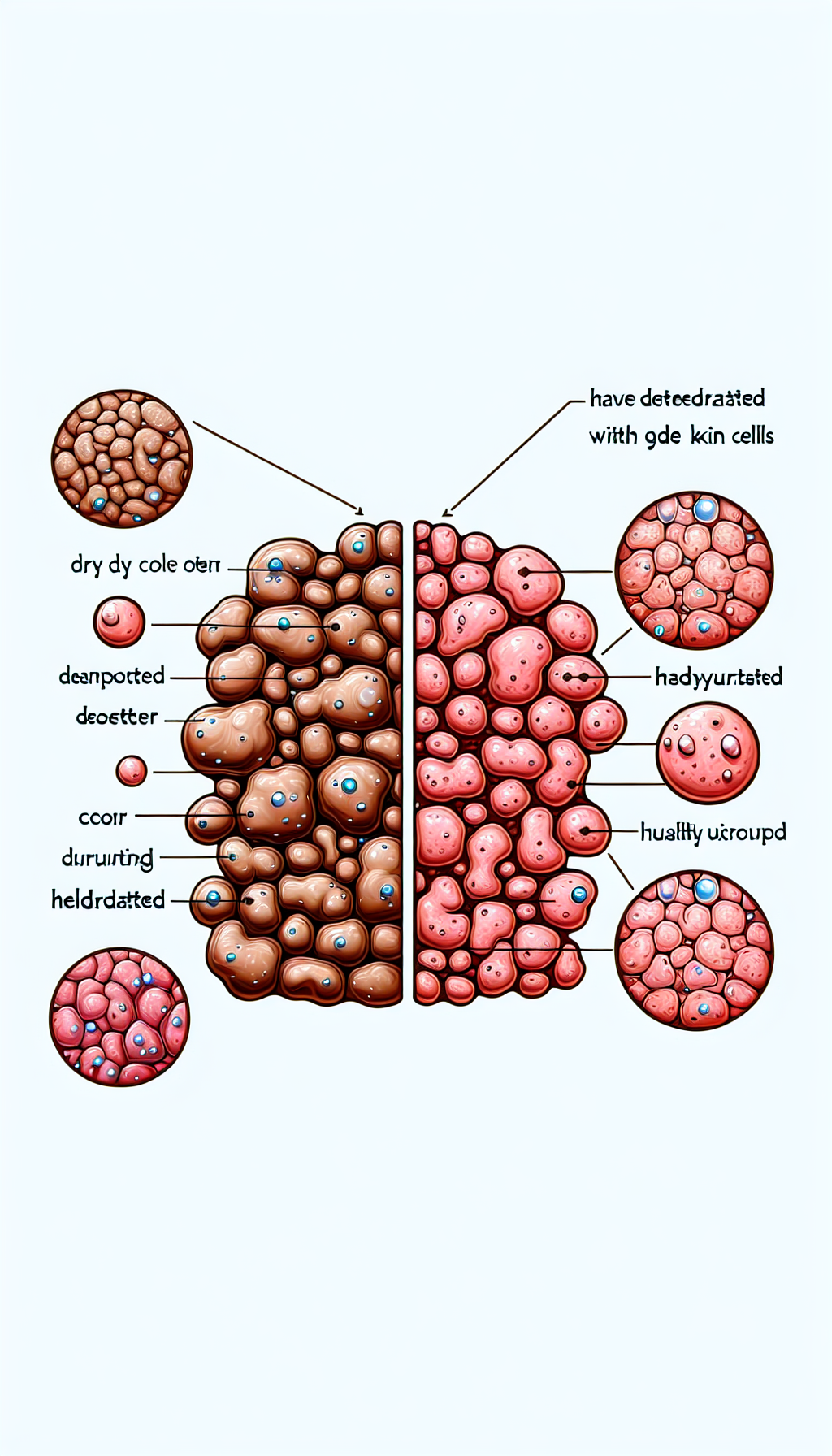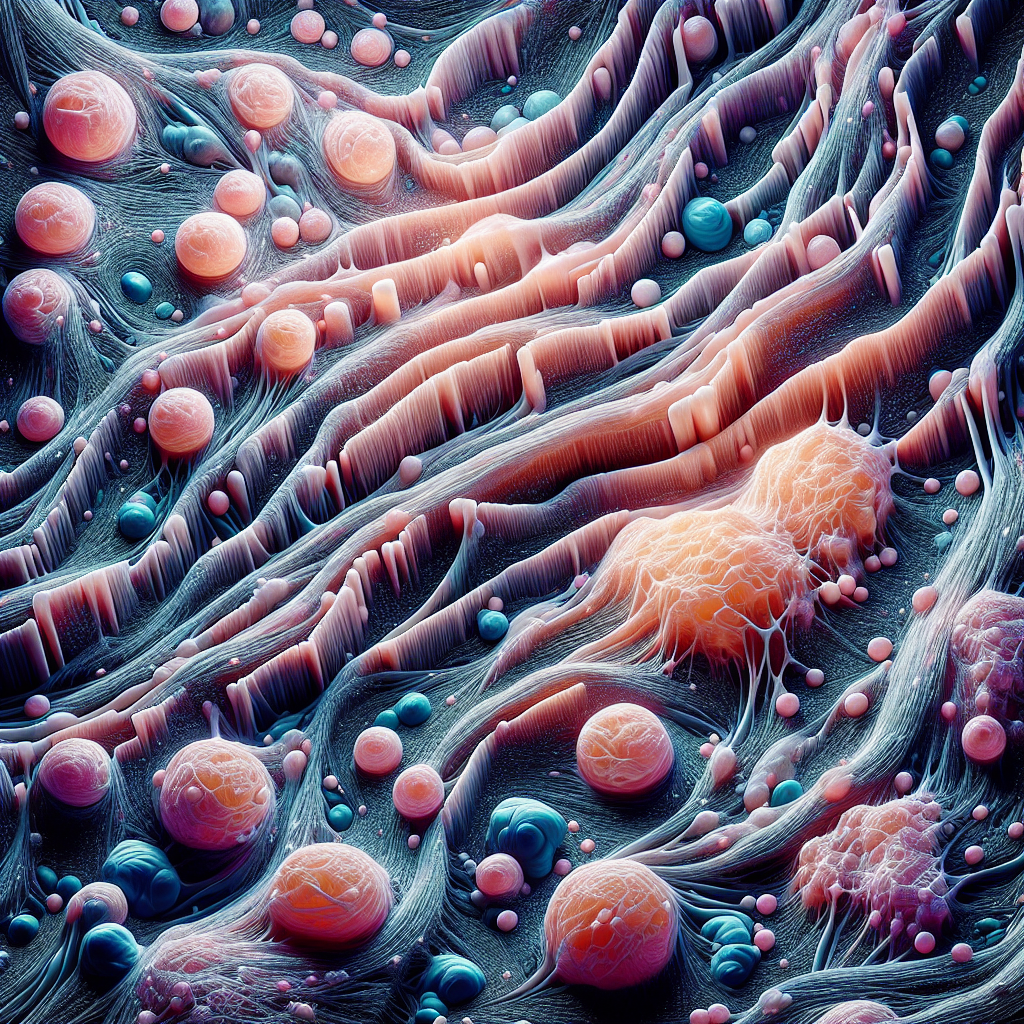Proper skin hydration and a robust skin barrier are fundamental to maintaining healthy skin. The skin is not only the largest organ of the body but also the most exposed to environmental stress. It acts as a protective shield against mechanical impacts, pathogens, and harmful substances. Understanding the science behind skin hydration and barrier repair is essential for anyone looking to preserve skin health and appearance.
The Role of the Skin Barrier in Overall Health
The skin barrier, primarily located in the outermost layer of the skin known as the stratum corneum, is composed of dead skin cells held together by a mix of lipids. It serves two crucial functions: preventing the excessive loss of water from the body and blocking the entry of external irritants and allergens.
When the skin barrier is damaged, it can lead to a host of skin issues, including dryness, irritation, and increased sensitivity. A compromised skin barrier also makes the skin more susceptible to infections and inflammatory conditions. For comprehensive insights on maintaining overall Skin Health, it’s important to understand the factors that affect the skin barrier and how to protect it.
Hydration: The Foundation of a Healthy Skin Barrier
At its core, skin hydration refers to the water content within the skin cells, which is essential for a plump, resilient, and youthful appearance. Hyaluronic acid, glycerin, and ceramides are some of the natural components within the skin that help to retain moisture. However, factors like aging, environmental stressors, and harsh skincare products can deplete these natural moisturizers, leading to dry and dehydrated skin.
Adequate hydration is vital for the skin’s barrier function. It helps to maintain flexibility and prevents the formation of cracks and gaps through which pathogens and irritants can penetrate. To explore more about the benefits of hydration, consider reading about The Role of Hydration in Maintaining Skin Health.
Strategies for Skin Hydration and Barrier Repair
1. Use Gentle Skincare Products
Choosing the right skincare products is crucial for barrier repair. Look for cleansers, moisturizers, and serums that are free from harsh sulfates, alcohols, and fragrances, as these can strip the skin of its natural oils. Instead, opt for products that contain ingredients like ceramides, fatty acids, and cholesterol, which mimic the skin’s natural lipid composition and help to restore the barrier.
2. Apply Hydrating Ingredients
Ingredients such as hyaluronic acid and glycerin are humectants that draw moisture into the skin. By using products that contain these ingredients, you can boost the skin’s hydration levels, which in turn supports barrier function.
3. Protect Against Environmental Stress
Environmental factors like UV radiation, pollution, and extreme temperatures can damage the skin barrier. Using broad-spectrum sunscreen, antioxidants, and protective clothing can help mitigate these effects. For more detailed strategies, read How to Protect Skin from Pollution and Environmental Stress.
4. Maintain a Healthy Diet
Diet plays a significant role in skin health. Foods rich in omega-3 fatty acids, such as flaxseeds and fish, can support skin barrier repair. Additionally, a diet high in fruits and vegetables provides antioxidants that protect against oxidative stress.
5. Stay Hydrated
Drinking enough water is essential for overall health and skin hydration. While topical products are important, internal hydration ensures that the skin receives the moisture it needs from the inside out.
Advanced Treatments for Barrier Repair
For those seeking more intensive barrier repair, treatments like professional facials, laser therapy, and microdermabrasion can help. These procedures should be performed by qualified dermatologists or skincare professionals.
External Resources Supporting Skin Barrier Health
Numerous external resources provide valuable information on skin barrier health and hydration. Here are a few to consider:
- The Skin Barrier Research Group offers insights into the latest research on the skin barrier and its function.
- The American Academy of Dermatology provides a wealth of information on skin health, including tips for maintaining a strong skin barrier.
- The International Dermal Institute offers detailed articles and studies on skin science, including hydration and barrier repair mechanisms.
Conclusion
Understanding and implementing the science behind skin hydration and barrier repair is vital for anyone looking to enhance their skin health and function. By incorporating gentle skincare products, hydrating ingredients, environmental protection, a healthy diet, and adequate water intake, you can maintain a robust skin barrier. And for those seeking additional help, professional treatments and consultations with a dermatologist can provide tailored solutions.
For more in-depth information on skin health and related topics, be sure to explore the resources provided and consider the valuable knowledge shared in other articles on skin care practices and advancements.



